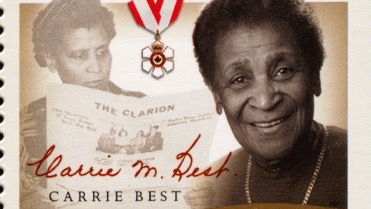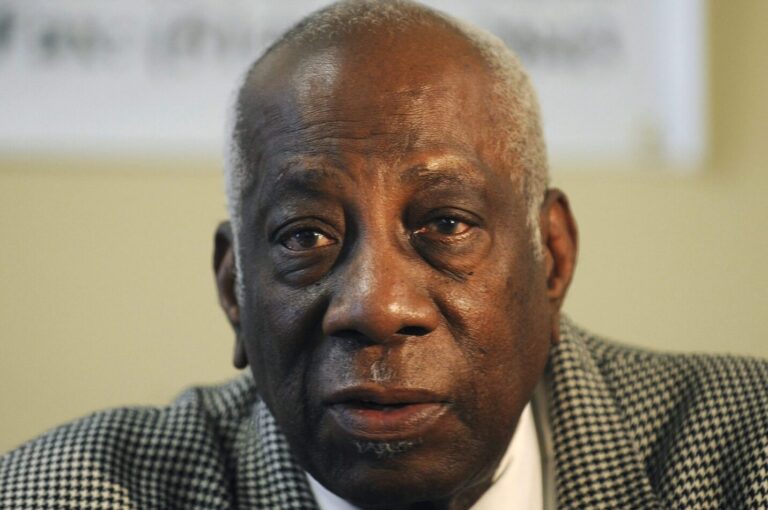
Carrie Best, postage stamp, Canada: 59 cents, Date of issue 1 February 2011.
© Canada Post Corporation, 2011, image courtesy of Library and Archives Canada
Carrie Best was a pioneering Canadian civil rights activist, journalist, and author whose tireless efforts helped shape the country’s social justice landscape. Through her work as a writer and advocate, she challenged racial discrimination and fought for the rights of Black Canadians, leaving an indelible impact on Canada’s history.
Early Life and Education
Carrie Mae Prevoe Best was born on March 4, 1903, in New Glasgow, Nova Scotia. Growing up in a racially segregated society, she witnessed firsthand the injustices faced by Black Canadians. Despite limited educational opportunities for Black students at the time, Best pursued knowledge independently, developing a strong passion for writing and activism from an early age.
Activism and The Clarion
In 1943, one of Best’s most notable acts of resistance took place when she challenged racial segregation at the Roseland Theatre in New Glasgow. Along with her son, she was forcibly removed for sitting in the whites-only section. Rather than accept defeat, she took legal action against the theatre, bringing attention to racial injustices in Canada. Though she lost the case, the experience fueled her determination to fight for equality.
Following this event, Best established The Clarion in 1946, Nova Scotia’s first Black-owned newspaper. The publication served as a powerful platform for advocating civil rights, exposing racial discrimination, and highlighting the contributions of Black Canadians. Best used The Clarion to address issues often ignored by mainstream media, giving a voice to marginalized communities.
Later Career and Legacy
Best’s influence extended beyond journalism. She became a regular columnist for The Pictou Advocate and later hosted a radio show, further amplifying her advocacy work. Throughout her career, she tirelessly campaigned against systemic racism and inequality in Canada, ensuring that the struggles and achievements of Black Canadians were recognized.
Her contributions did not go unnoticed. In 1974, she was appointed a Member of the Order of Canada for her dedication to human rights. She later received honorary doctorates from several universities, cementing her legacy as a trailblazer in Canadian history.
Impact and Recognition
Carrie Best’s efforts laid the foundation for future generations of activists and journalists. Her unwavering commitment to justice helped to break down racial barriers and create opportunities for Black Canadians in media and beyond. Today, she is remembered as a fearless advocate who used the power of words to challenge discrimination and inspire change.
Carrie Best passed away on July 24, 2001, but her legacy continues to inspire those who fight for equality and justice. Her pioneering work in journalism and activism serves as a reminder of the power of perseverance and the importance of standing up against injustice in all its forms.



